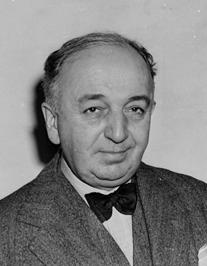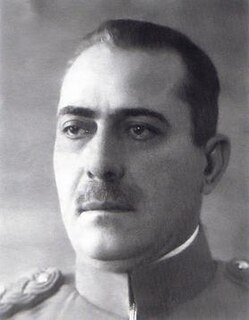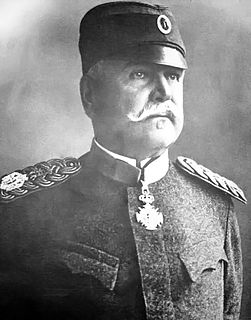 W
WThe Medal for Bravery or Courage, commonly known as the Medal of Miloš Obilić, is a state decoration awarded by the Republic of Serbia, and before that by the Kingdom of Serbia and the Kingdom of Yugoslavia, for heroic acts.
 W
WSrđan Aleksić, nicknamed Srđo, was a Bosnian Serb amateur actor, prospective swimmer, and soldier in the Army of Republika Srpska (VRS) during the Bosnian War. He saw his neighbour, an ethnic Bosniak, being harassed by a group of VRS soldiers, whom he then tried to stop; the soldiers turned to Aleksić, beating him with their rifle butts until he fell into a coma. He died a week later at the hospital. He has received several posthumous awards for his act, viewed of as deeply heroic in a time of bloody war. A documentary about his life, Srđo, was made by RTS in 2007.
 W
WGeorge Harold "Harry" Beadles was a Welsh professional footballer who played for Liverpool, Cardiff City, Southport and Dundalk, as well as the Wales national football team. A veteran of World War I, he served in the 7th battalion of the Royal Welch Fusiliers after enlisting at the age of just 16. He took part in operations in Turkey, where he was awarded the Serbian Gold medal for his actions in saving a Serbian officer, and Palestine.
 W
WMilan Bjelica is a former Deputy Chief of Serbian General Staff of the Serbian Armed Forces. He is married, father of two children, Maja and Marija.
 W
WMilan Bogdanović was a Serbian writer and literary critic.
 W
WDiana Budisavljević was an Austrian humanitarian who led a major relief effort in Yugoslavia during World War II. From October 1941, on her initiative and involving many co-workers, she organized and provided assistance to mostly Serbian Orthodox women and children detained in the Ustaše camps in the Independent State of Croatia, a Nazi puppet state established in occupied Yugoslavia. The operation, known as "Action Diana Budisavljević", succeeded in saving around 10,000 children. Budisavljević described the course of the Action in a diary, starting with 23 October 1941 and the final entry on 7 February 1947. The diary was released in Croatian in 2003. After her story was better publicized in 2012, she received substantial posthumous recognition.
 W
WVojin I. Čolak-Antić, also known as Vojin Tcholak-Antitch, was a Serbian senior army officer in the Royal Serbian Army and the Royal Yugoslav Army who held a number of senior commands, staff and diplomatic functions.
 W
WDimitrije Đurić was a Serbian army officer, minister of defence, professor at the military academy and member of the Serbian Royal Academy of Science.He also served as 8th Dean of the Academic Board of the Military Academy in Serbia and its chief on two occasions, 1887-1889 and 1891-1893.
 W
WKonstantin A. Fotić was a Serbian lawyer and diplomat.
 W
WSimo Kecojević was a Serbian freedom fighter, having participated in the irregular guerrilla forces in the Kosovo Vilayet between 1910 and 1912, then as regular soldier in the Balkan Wars, World War I and World War II.
 W
WOlive May Kelso King was an adventurer and mountain climber. During World War I she drove ambulances for the Scottish Women's Hospitals and later the Serbian Army. After the war she raised money for the Serbian people and later in life she was a public speaker.
 W
WDavid Ross Lauder VC was a Scottish recipient of the Victoria Cross, the highest and most prestigious award for gallantry in the face of the enemy that can be awarded to British and Commonwealth forces.
 W
WAlexandros Mazarakis-Ainian was a Hellenic Army officer who rose to the rank of lieutenant general. He served thrice as Chief of the Hellenic Army General Staff, occupied various important ministerial positions and became president of the Academy of Athens.
 W
WSvetozar T. Nešić was a general staff colonel of the Royal Serbian Army. In the period from 1902 to 1903. He was the acting Chief of the Serbian General Staff from 1902 to 1903.
 W
WDanail Tsonev Nikolaev was a Bulgarian officer and Minister of War on the eve of the Balkan wars. He was the first person to attain the highest rank in the Bulgarian military, General of the infantry. He was also known as "the patriarch of the Bulgarian military".
 W
WKonstantin "Kosta" Milovanović Pećanac was a Serbian and Yugoslav Chetnik commander (vojvoda) during the Balkan Wars, World War I and World War II. Pećanac fought on the Serbian side in both Balkan Wars and World War I, joining the forces of Kosta Vojinović during the Toplica uprising of 1917. Between the wars he was an important leader of Chetnik veteran associations, and was known for his strong hostility to the Yugoslav Communist Party, which made him popular in conservative circles. As president of the Chetnik Association during the 1930s, he transformed it into an aggressively partisan Serb political organisation with over half a million members. During World War II, Pećanac collaborated with both the German military administration and their puppet government in the German-occupied territory of Serbia.
 W
WMilorad Petrović was an Armijski đeneral in the Royal Yugoslav Army who commanded the 1st Army Group during the April 1941 German-led Axis invasion of Yugoslavia of World War II. Petrović was commissioned into the Royal Serbian Army in 1901 and served in multiple staff positions during the Balkan Wars. During World War I, he served in various staff roles at the army and divisional level during the Serbian Campaign and later on the Macedonian Front. Following the war, he took part in military operations along the disputed northern border of the nascent Kingdom of Serbs, Croats and Slovenes, which was renamed the Kingdom of Yugoslavia in 1929. During the interwar period, Petrović was steadily promoted, performing key roles at the Ministry of the Army and Navy. He reached the rank of armijski đeneral in 1937. At the time of the 27 March 1941 Yugoslav coup d'état, he was the military commander of the Yugoslav capital, Belgrade.
 W
WField Marshal Radomir Putnik was the first Serbian Field Marshal and Chief of the General Staff of the Serbian army in the Balkan Wars and in the First World War. He served in every war in which Serbia fought from 1876 to 1917.
 W
WMikhail Dmitriyevich Skobelev was a Russian general famous for his conquest of Central Asia and heroism during the Russo-Turkish War of 1877–1878. Dressed in white uniform and mounted on a white horse, and always in the thickest of the fray, he was known and adored by his soldiers as the "White General". During a campaign in Khiva, his Turkmen opponents called him goz ganly or "Bloody Eyes". British Field Marshal Bernard Montgomery wrote that Skobelev was the world's "ablest single commander" between 1870 and 1914 and called him a "skilful and inspiring" leader.
 W
WField Marshal Stepan "Stepa" Stepanović was a Serbian military commander who fought in the Serbo-Turkish War, the Serbo-Bulgarian War, the First Balkan War, the Second Balkan War and World War I. Having joined the Serbian military in 1874, he fought against the forces of the Ottoman Empire in 1876. Over the following years, he climbed up the ranks of the Serbian Army and fought against Bulgarian forces in 1885. He eventually became the Serbian Minister of War in April 1908 and was responsible for instituting changes in the Serbian Army.
 W
WGeorge Stringer VC from Miles Platting, Manchester was an English recipient of the Victoria Cross, the highest and most prestigious award for gallantry in the face of the enemy that can be awarded to British and Commonwealth forces.